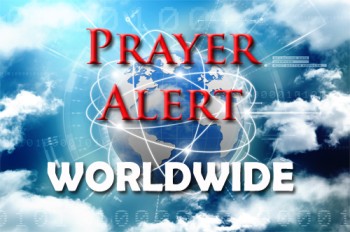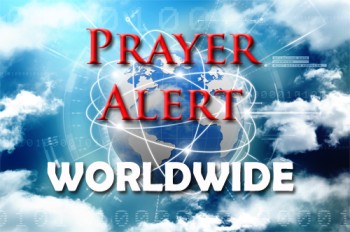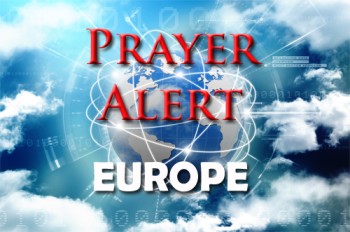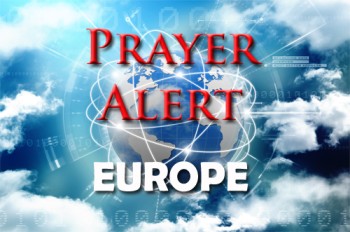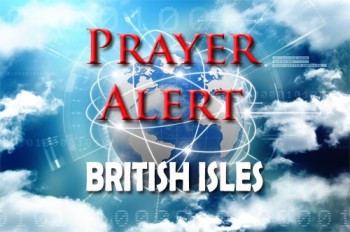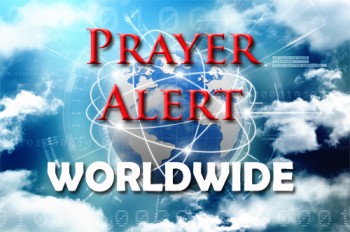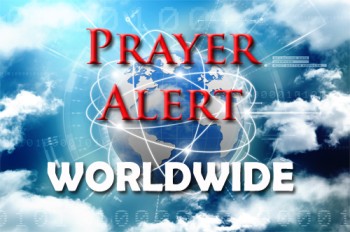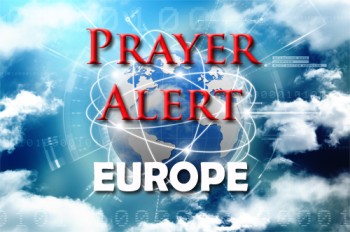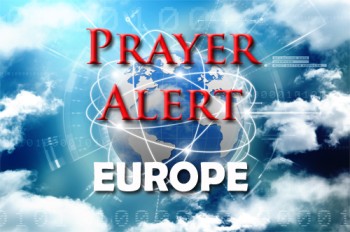Displaying items by tag: wildfires
Argentina: Patagonia wildfires bring criticisms of Milei’s austerity policies
Wildfires are tearing through Argentina’s Patagonia region, burning vast areas of native forest and threatening irreplaceable ecosystems. More than 450 square kilometres have already been destroyed, including parts of a national park, a UNESCO World Heritage Site home to ancient alerce trees which can live for thousands of years. Thousands of residents have been evacuated as firefighters battle intense winds, high temperatures and difficult terrain. Fire crews report shortages of trained staff, aircraft and basic equipment, leaving them dangerously overstretched. Environmental groups warn that climate change is worsening fire conditions, making such blazes more frequent and severe. The crisis has intensified criticism of president Javier Milei’s aggressive austerity policies. His ‘chainsaw’ spending cuts this year have slashed the national fire management service’s budget by 71 percent. Milei, who has called climate change a ‘socialist lie’ and is considering withdrawing from the Paris Agreement, faces mounting pressure as the fires have now destroyed an area more than twice the size of Buenos Aires.
Greece: wildfires threaten large city, European heatwave
Fast-moving wildfires have reached the outskirts of Patras, Greece’s third-largest city, forcing mass evacuations, including a children’s hospital, and destroying thousands of hectares in the surrounding region. Entire villages have been emptied, homes and businesses lost, and hundreds of vehicles incinerated. Strong winds and soaring temperatures, reaching 38°C, have worsened the crisis, while smoke has caused respiratory problems for many residents. Across Greece, over 4,800 firefighters are battling more than 20 blazes, with EU water bombers requested for support. The crisis is part of a broader southern Europe heatwave, with deadly fires in Spain, large outbreaks in Portugal, Albania, and Italy, and record-high temperatures threatening lives and infrastructure. Meteorologists say such extremes are becoming more frequent and intense due to human-induced climate change. See also UK article ‘fourth heatwave’.
Canada / USA: air quality alerts due to widespread wildfires
Air quality alerts have been issued across Canada and northern USA as smoke from widespread wildfires continues to degrade air conditions, prompting urgent health warnings. Environment Canada has warned residents, especially in Ontario and Toronto (where air quality recently ranked among the worst globally), to limit outdoor exposure. Similar alerts have been issued in US cities like Chicago, where unhealthy ozone levels and residual smoke from Canadian fires are posing additional concerns. Wildfires raging across Manitoba, Saskatchewan, and northern Ontario have forced tens of thousands to evacuate, with emergency responders working to assess the rapidly changing situation. Also, political tensions emerged after some Congress members said Canada’s wildfires were ‘making it difficult for Americans to enjoy their summer’. Scientists attribute the increasing intensity and frequency of wildfires to climate change; Canada is believed to be warming at twice the global rate.
Europe: severe heatwave, record temperatures, wildfires
A severe early-summer heatwave is scorching much of Europe, triggering wildfires, evacuations, and health alerts across multiple countries. In Turkey, over 50,000 people have been evacuated due to wildfires, especially near Izmir. France has faced peak temperatures of 40°C, with wildfires prompting evacuations. Spain is on track for its hottest June ever, with Seville reaching 42°C. Italy issued red heat alerts for 16 cities and may restrict working outdoors. Germany is also issuing warnings, urging water conservation while facing disrupted river shipping because the water level of the Rhine has dropped. UN secretary-general António Guterres has commented, ‘Extreme heat is no longer a rare event – it has become the new normal.’ Heatwaves are already the world’s deadliest weather hazard, killing nearly half a million people annually, surpassing the toll from floods, hurricanes, and earthquakes combined.
Greece: five wildfires break out on Chios
A state of emergency has been declared on the Greek island of Chios as five separate wildfires, fanned by strong winds, are ravaging homes, farms, and infrastructure. The fires broke out within hours of each other, prompting the evacuation of seventeen communities. The authorities have launched an arson investigation, citing the suspicious timing and clustering of the blazes. They have caused widespread damage, destroying homes and cutting power across the island. Nearly two hundred firefighters, backed by aircraft and helicopters, are tackling the flames, with ninety more en route from Athens and Thessaloniki. Residents have joined in the firefighting effort, using buckets and makeshift equipment. This is the first major wildfire this summer for Greece, which is no stranger to devastating fires and extreme heat.
Climate change: government plans are ‘dangerously inadequate’
A scathing new report from the Climate Change Committee (CCC) warns that government efforts to protect people and infrastructure from the impacts of climate change are dangerously inadequate. The report found that of 46 key adaptation measures, none are rated ‘good’, and progress has been glacial or even regressive. Despite climate threats already affecting homes, farmland, railways, schools, and hospitals, adaptation remains a low priority. Forecasts show that by 2050, over half of England’s best farmland and critical infrastructure will be at flood risk, while heat-related deaths could exceed 10,000 annually. Businesses, farmers, and scientists are calling for urgent action, stressing that ignoring adaptation now will bring national security risks and economic costs. The Government may claim that it is prioritising climate resilience, but budget cuts - including to flood defences - cast doubt. Experts, pointing to successful models abroad, are urging clearer targets, better planning, and private sector engagement to prevent worsening climate disasters.
Los Angeles: winds lighten, but fires still burning
Winds in Los Angeles, which have exacerbated wildfires, were expected to intensify again on 15 January, but in fact weakened to much lighter gusts. At least 25 people have been killed and more than 12,000 structures destroyed in some of the worst fires in memory to engulf America's second biggest city. The two largest fires, Eaton and Palisades, are still burning after more than a week - and firefighting help has been sought from Mexico and Canada. Officials said there has been little to no fire growth in the last 24 hours, but stressed that unburned, dry fuel combined with low humidity could pose threats despite the decreased winds. While first responders are making progress putting out flames, evacuated residents will not be able to return to their neighborhoods for at least one more week, even for areas deemed safe. Around 82,400 Californians are under evacuation orders, according to Sheriff Robert Luna. He also said there have been 47 arrests related to looting and violations of evacuation orders.
Los Angeles: devastating wildfires
Wildfires ravaging Los Angeles have reached the Hollywood Hills, forcing over 100,000 people to evacuate. Six different fires, fuelled by dry hurricane-force winds, have killed at least five people, burned thousands of acres, and destroyed hundreds of homes. The Sunset fire in Hollywood Hills, while relatively small at fifty acres, has disrupted the entertainment industry, threatening iconic landmarks like Sunset Boulevard. On the west side, the Palisades fire has consumed over 15,000 acres and devastated neighbourhoods. To the east, the Eaton fire has scorched over 10,000 acres and destroyed 1,000 structures. Economic losses to date are estimated at $50 billion. Firefighters are stretched thin; they have been reinforced by teams from other areas, and even by prison inmates. See
Portugal: firefighters die battling wildfires
To date, seven Portuguese firefighters have died while battling over fifty wildfires ravaging the country’s central and northern regions. Portugal has mobilised around 5,300 firefighters and has also called for EU help. The fires have forced the closure of major motorways and disrupted train services in the north. Though authorities describe the situation as ‘calmer but still worrying’, many villages remain under threat. The hardest-hit area, Aveiro district, has lost dozens of homes, with four deaths reported. The fires, which have already burned through more than 10,000 hectares (24,710 acres) of forest and shrubland, could engulf a further 20,000 hectares. Portugal and Spain have so far recorded fewer fires than usual this year, but both remain vulnerable to the increasingly hot and dry conditions caused by global warming.
Greece: wildfires cause widespread damage and evacuations
Although wildfires around Athens have now been brought under control, Greek officials remain on high alert due to the risk of flare-ups caused by high winds and temperatures exceeding 30°C (86°F). Over 100,000 acres of land have been scorched, leading to the death of one woman and dozens of injuries. Thousands of residents were evacuated as flames reached up to 25 metres (82 feet) high. Firefighters continue to douse affected areas, with a strong presence maintained in the region. The government is assessing damage, and assistance has been given by several European countries, including Italy and France. The country’s prime minister, Kyriakos Mitsotakis, returned early from his holiday to address the crisis. Buildings, businesses, and even a school have been destroyed by the fires. Greece has just experienced its hottest June and July on record.
